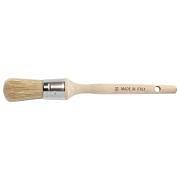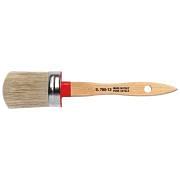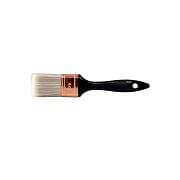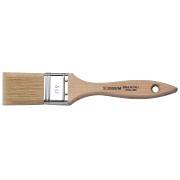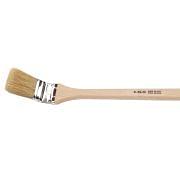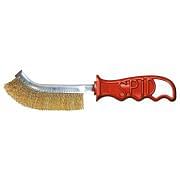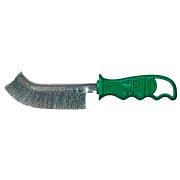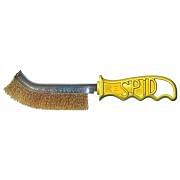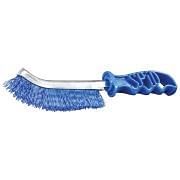Brushes
Brushes and paintbrushes are indispensable tools in machine shops, used for a variety of applications ranging from cleaning surfaces to painting metal components. Brushes and paintbrushes are available in different shapes and materials, each designed for specific industrial needs.
Wire brushes are ideal for removing rust, old paint and other impurities from surfaces. They can be made from stainless steel wire, brass or other alloys, offering strength and durability.
Abrasive brushes are used for deep cleaning and surface preparation prior to painting or welding. They are particularly effective in removing tenacious deposits and contaminants.
Nylon brushes are perfect for the gentle cleaning of sensitive mechanical components. Nylon is resistant to chemicals, making them suitable for use with solvents and detergents.
Paint brushes are essential for applying layers of primers, paints and sealants to metal surfaces. Available in various sizes and with bristles of different stiffnesses, paint brushes allow for an even and precise finish.
Advantages of Paint Brushes
- Versatility: Brushes and paintbrushes are extremely versatile tools that can be used for a wide range of applications, from cleaning to surface finishing.
- Efficiency: These tools allow cleaning and painting jobs to be carried out quickly and effectively, reducing maintenance time and improving productivity.
- Precision: Thanks to the variety of shapes and sizes, you can choose the most suitable tool for each type of job, ensuring precision and high-quality results.
- Durability: The high quality materials from which they are made guarantee a long tool life, even under intensive use.
- Safety: Using appropriate brushes and brushes reduces the risk of damaging delicate mechanical components, ensuring a safer working environment.
In machine shops, wire brushes are often used to prepare surfaces before welding or painting operations. Abrasive brushes, on the other hand, are essential for deep cleaning and the removal of stubborn contaminants. Paint brushes are used in the finishing of metal surfaces, ensuring an even application of primers and protective paints.
Brushes and paintbrushes play a crucial role in maintaining the operational efficiency of machine shops. Choosing the right type of brush or paintbrush can significantly affect the quality of the final work, the durability of components and the safety of operators.

